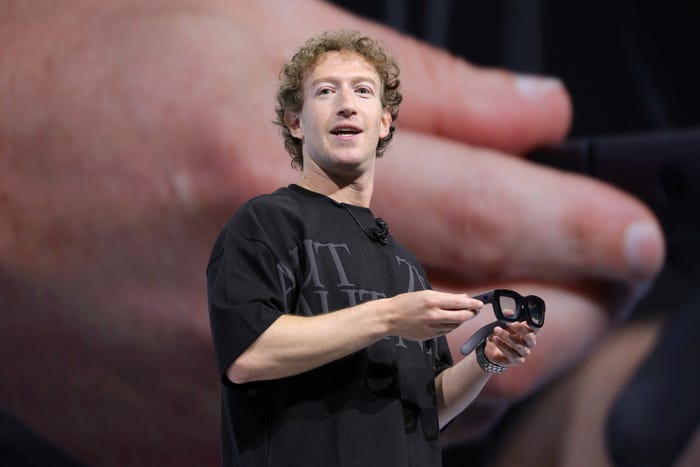Mark Zuckerberg Prepares to Showcase New AI Wearables at Meta Connect

Mark Zuckerberg is set to unveil new AI-powered wearable technology at the upcoming Meta Connect 2025 conference, taking place at the company’s headquarters in Menlo Park, California. This event will serve as a critical platform for Meta as it seeks to demonstrate its advancements in smart glasses and related products, aiming to capture consumer interest and investment.
The conference follows last year’s successful reveal of the Orion glasses, which showcased Meta’s vision for augmented reality. Designed primarily for developers, the Orion glasses were met with enthusiasm from early testers, including Nvidia CEO Jensen Huang. Despite their promising features, the glasses are not yet available to the general public. With this year’s event, Zuckerberg aims to shift from experimental prototypes to market-ready products that could appeal to a broader audience.
At the previous Meta Connect, Zuckerberg announced significant updates to existing products, such as the transparent Ray-Ban Meta frames and a budget-friendly Quest 3S headset, priced at $299. Following the keynote, Meta’s stock rose by over 2%, and sales of the Ray-Ban smart glasses exceeded 2 million units by early 2025.
What to Expect from Meta Connect 2025
This year, Zuckerberg will likely introduce several new products, including the Hypernova smart glasses, which are expected to feature an integrated heads-up display (HUD) at a lower price point than the Orion glasses, which cost around $10,000 to produce. The goal is to find a balance between advanced features and affordability, enticing consumers to invest in wearable technology.
Additional anticipated announcements include updates to the Ray-Ban Meta frames, potentially featuring a neural wristband that utilizes surface electromyography. Another product, the Oakley Sphaera smart glasses, is expected to cater to athletes, equipped with a center-mounted camera for improved performance tracking.
While it remains uncertain if the Quest 4 headset will be previewed, Meta may introduce an ultralight headset, codenamed “Puffin,” which is projected for release in 2026. Furthermore, upgrades to Meta’s AI capabilities are expected, enhancing functionalities such as contextual assistance and real-time translation across devices.
The Stakes for Meta
As competition intensifies in the tech industry, particularly in Silicon Valley, Meta’s investments in AI and wearable technology are under scrutiny. The company has reportedly allocated billions to its Reality Labs division and is actively recruiting top talent in AI research and hardware engineering. This includes a recent partnership with Scale AI, leading to the establishment of Meta Superintelligence Labs under the leadership of Alexandr Wang.
In a strategic move, Meta successfully attracted a co-creator of ChatGPT from OpenAI, appointing him as chief scientist of its Superintelligence Labs. The company has also recruited several researchers from OpenAI’s Zurich office, further bolstering its capabilities.
With these advancements, Zuckerberg faces a crucial test at Meta Connect 2025. He must convince consumers and investors that Meta’s significant investments in hardware and AI are converging into marketable products. The outcome of this event will not only influence Meta’s future but also its standing in the competitive landscape of technology.






